Developing a Business Plan:
Japan has a reputation for being an expensive country to visit. And while it is possible to spend a lot of money on wonderful accommodation (as it is pretty much anywhere), there are plenty of cheaper options, such as Japanese business hotels.

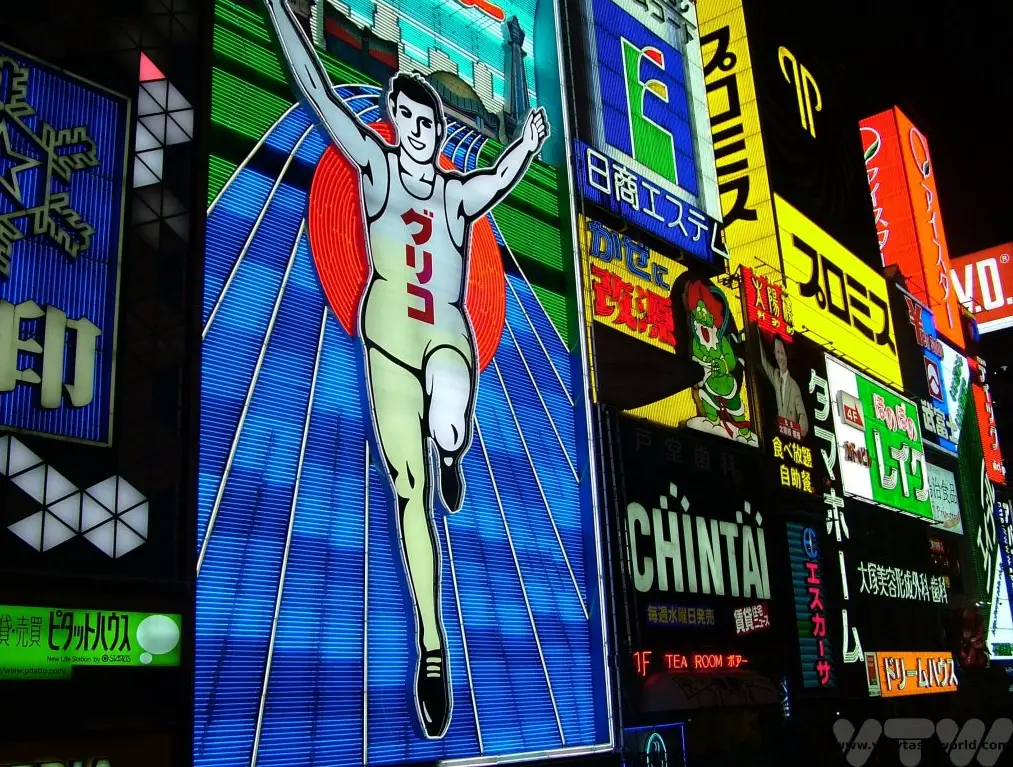
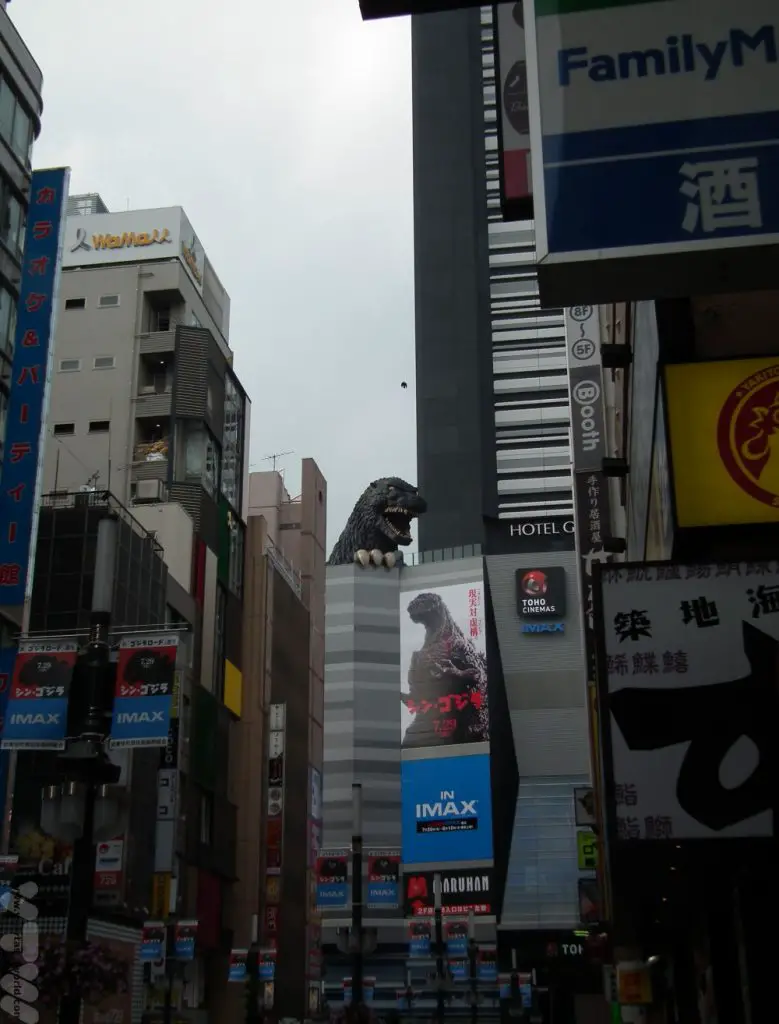
Business hotels are a great way of finding good value accommodation in Japan, especially in cities. Many are located close to railway stations, so you don’t have to drag your luggage too far if you are travelling by public transport (easily the best way to tour around Japan, especially if you have a Japan Rail Pass ). They are primarily designed for salarymen on business trips but are great for tourists too. There are loads of affordable hotels right in the centre of Tokyo; business hotels in other cities can be significantly cheaper.
You can reserve accommodation via the usual hotel booking sites but these days most hotels have an English language website where you can book direct. It’s worth noting that some hotels don’t release dates until quite close to the time of stay (between one and three months) so if you are super-organised and want to ensure you have your accommodation booked early the booking sites still offer a pretty good deal – and a guarantee that you can stay there. Indeed, some may offer free cancellation up to a few days before your stay so you could book up early and change your plans if you need to.
Japanese Business Hotels – What To Expect
Business hotel rooms are small. There’s no escaping that fact. Think of all the estate agent euphemisms about describing tiny spaces: “small but perfectly formed”, “compact and bijou”, “cosy”… We’ve stayed in some rooms where you could barely swing a kitten, let alone a cat.
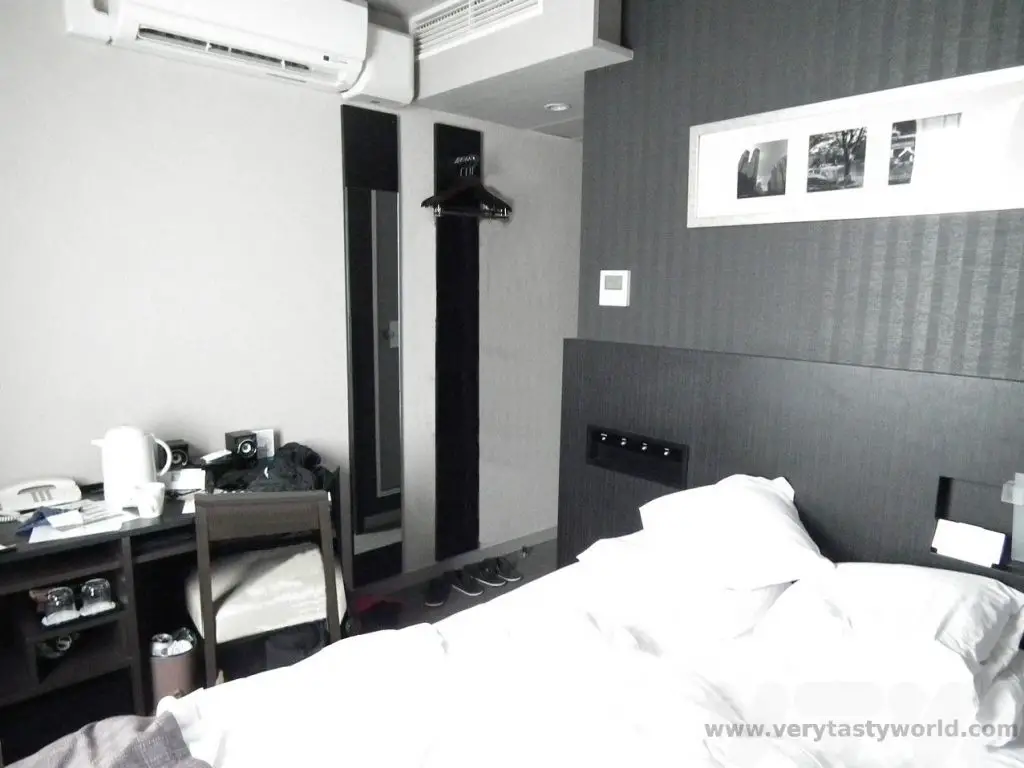
Sometimes the hotels themselves are tiny. You might walk into a compact lobby that has just a front desk and an elevator to the floors above. But, the thing is, you’re in Japan! Why would you want to spend time in your hotel when there are amazing vibrant neon cities or charming towns to explore?
If the room is small then the bathroom is minuscule. It’s a pre-fabricated plastic shell. But everything you need is in there. Bath/shower, basin and… the toilet.
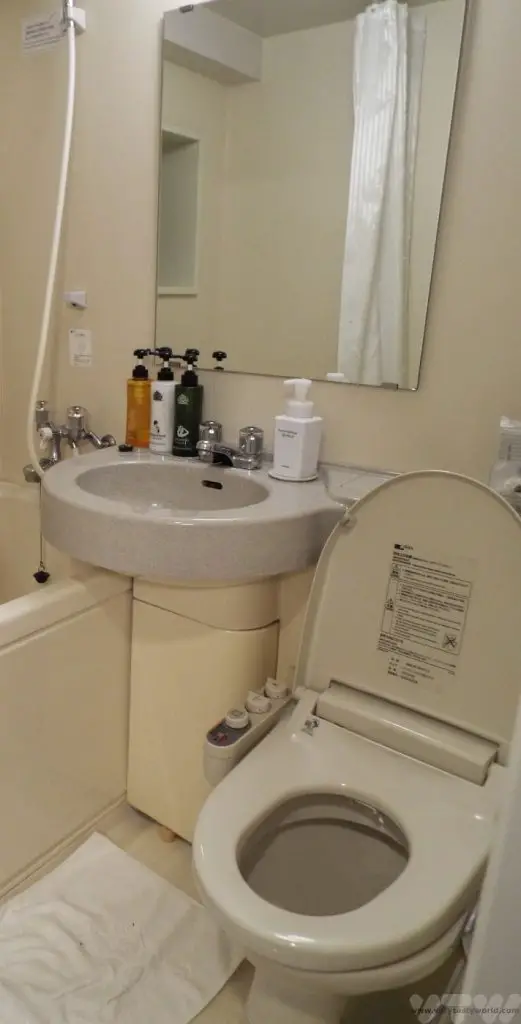
Japanese toilets are an experience in themselves. When you discover that your toilet has a control panel you know that your bathroom experience is going to be… interesting. Don’t worry, it’s fine, you can get away with answering the call of nature then simply pressing a button (look out for the kanji 大 (big) or 小 (small) to get the required level of flush) but if you’re feeling more adventurous bidet options are very common, so be prepared for a jet of warm water if you select the right option. Of course, the instructions may be in Japanese, in which case you might be taking pot luck. This kanji means stop: 止. Some toilets are sophisticated enough to have seat warmers or even make a sound of tinkling water to disguise those undesirable body sounds emitted while using the loo.
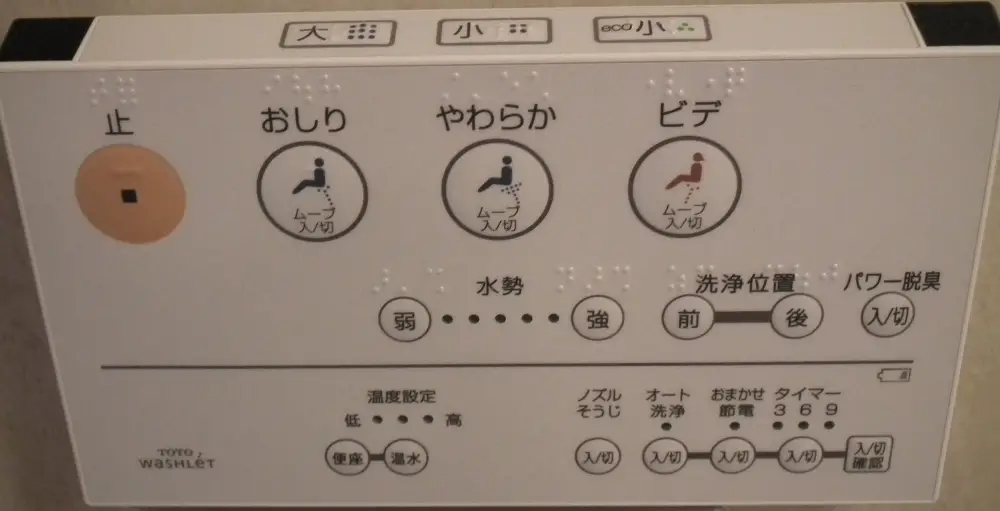
The bathroom will also contain a basket of useful toiletries which are free for your use. These include a toothbrush/toothpaste set, razor and shaving foam, a comb and other little items. So you really don’t have to worry if you forgot to pack your toothbrush!
Indeed Japanese business hotels manage to pack a huge amount of facilities into such a compact space. And they genuinely supply everything you need.
Most rooms will have a fridge. They are small but great for storing a beer or sake (or two) and, also, you might want to pick up a breakfast bento at the local konbini convenience store.
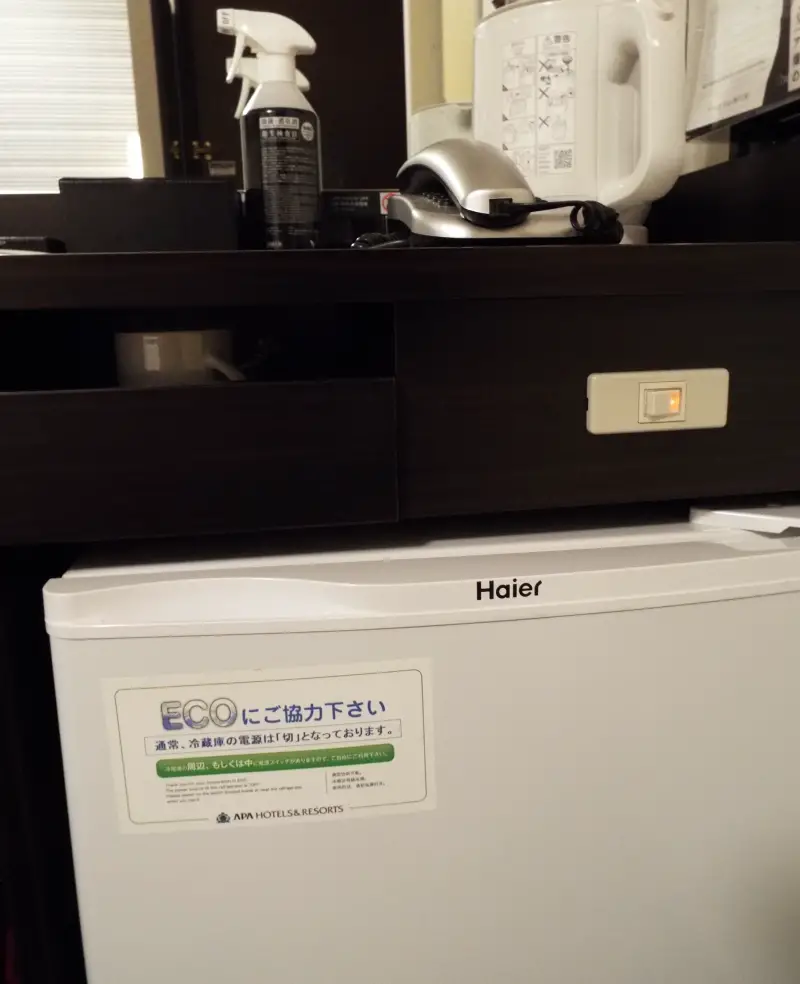
Most business hotels will supply disposable slippers (using outdoor shoes inside is usually a no-no in Japan) and sometimes there will be a yukata (light cotton kimono) for relaxing in.
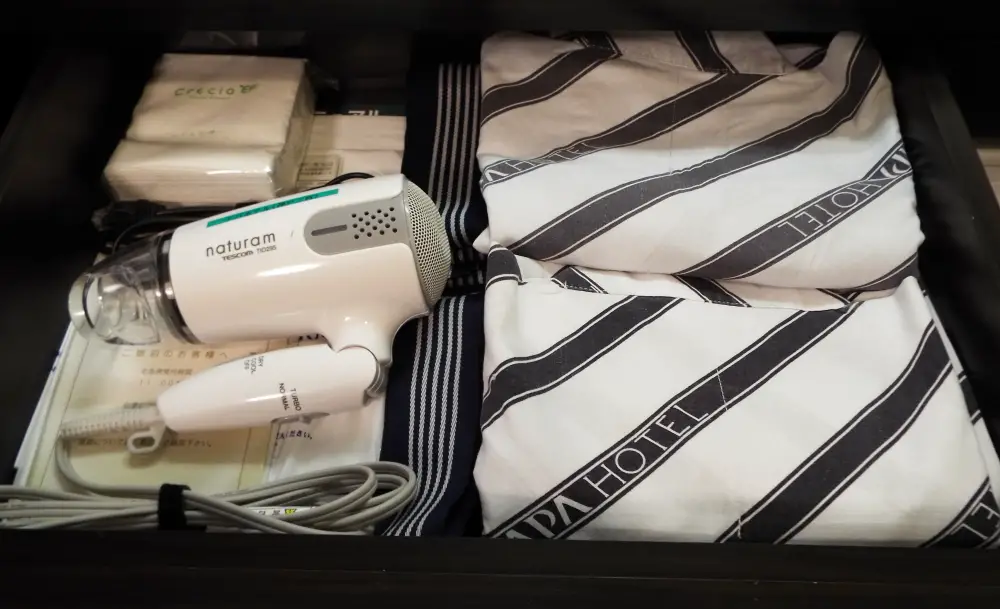
There’s always a TV as well as a kettle and cups along with sachets of tea so that you can enjoy a hot beverage, if you can work out how to use the kettle (fill with water and press the buttons bearing in mind that one will probably dispense very hot water, if indeed you’ve managed to heat it).
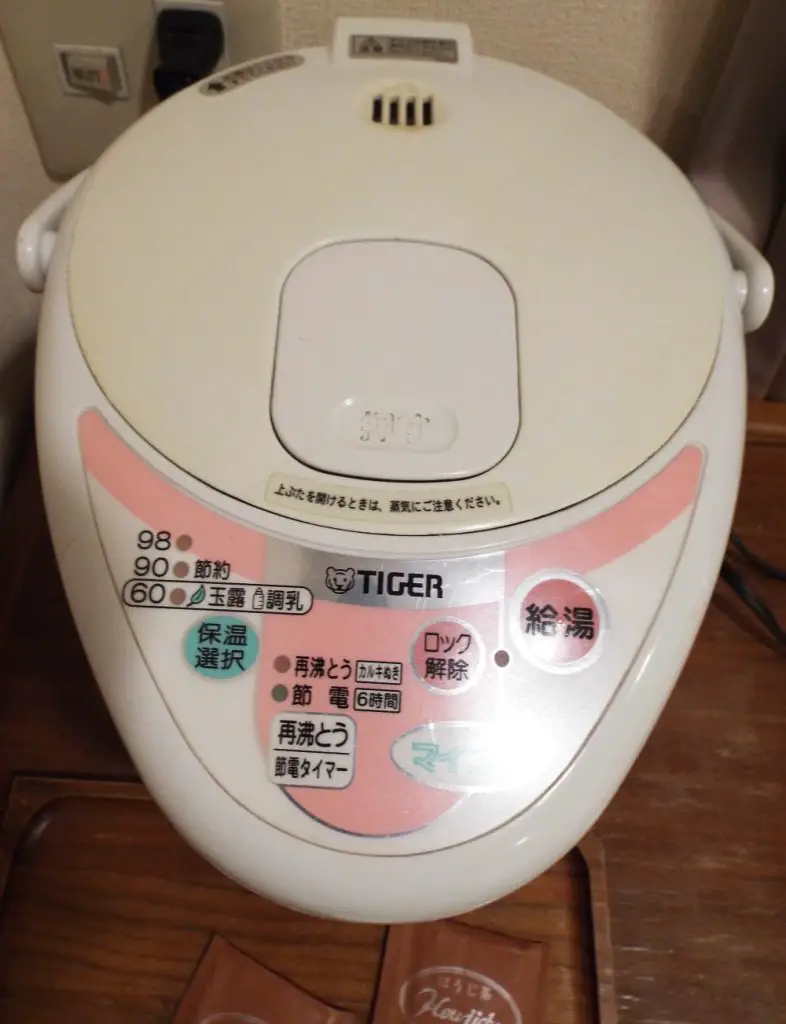
One problem we have found is that it can be tricky to store your luggage. Some beds have enough space to push your luggage underneath and this works particularly well if you have squishable soft bags. Big, hard cases are not ideal, but there is a solution if you don’t need to have all your luggage with you all the time. You can forward luggage to another hotel via Takkyubin (described here) which is an amazingly efficient and great value service. We often found that keeping one ‘big bag’ (we always ensure that we have a mix of our clothes/undies for each of us in both bags rather than packing a separate bag per person – just in case luggage gets lost on the flight out) and forwarding the other onto another hotel means that you only need to worry about storing one bag in the room.
It’s not common for Japanese business hotels to offer a substantial breakfast and many won’t offer food at all. Some may have a small café area where you can pick up a tea or coffee, others may offer a basic breakfast – such as rice balls (onigiri) and a cup of green tea. There will almost certainly be vending machines so that you can purchase food (snacks or cup noodles) and drinks (soft drinks, canned coffee or beer). And you usually won’t be far from a convenience store (konbini) where you can buy pretty much anything you might need! We often pick up a bento (boxed meal) for breakfast – at a few hundred yen they are cheap and filling and can be stored in the room’s fridge. There’s usually a great variety to choose from.
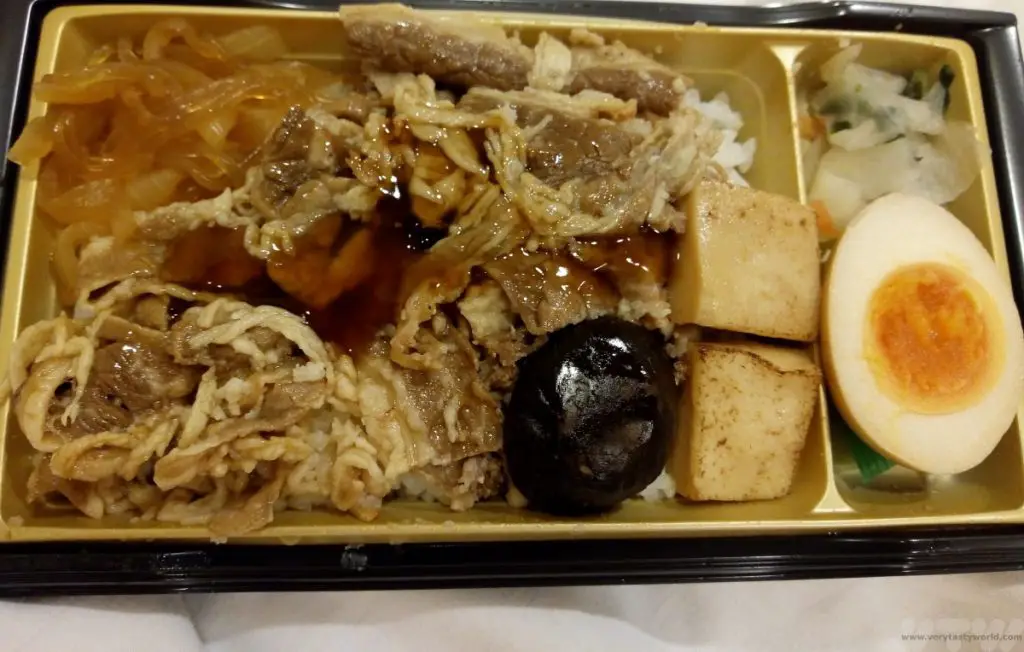
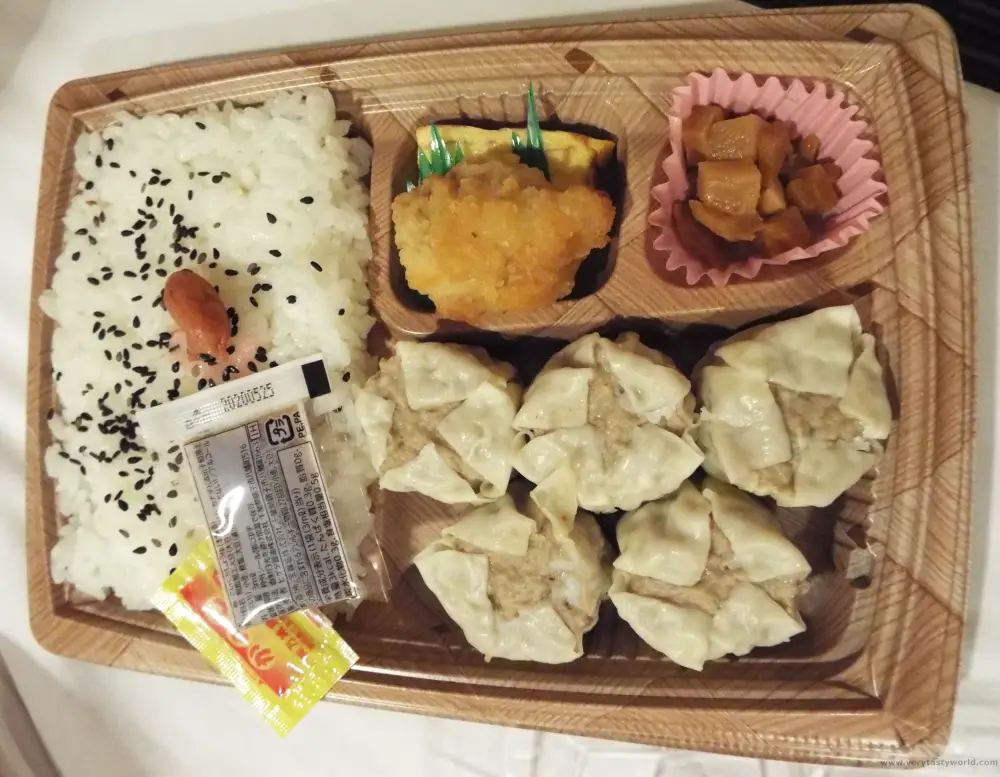
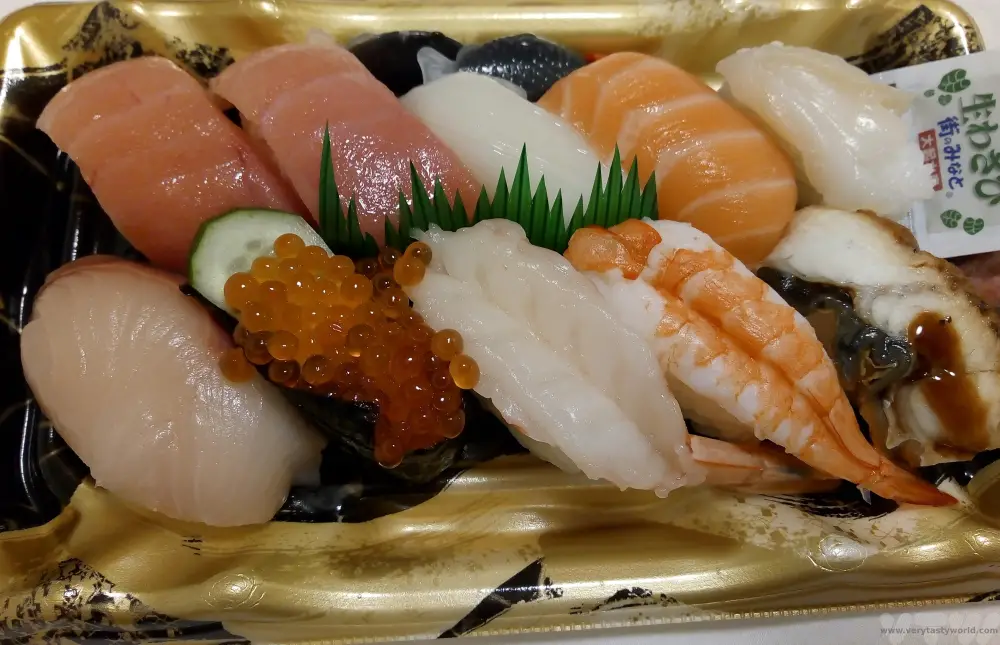
Japanese business hotels are undoubtedly great value but it is also nice to experience other types of accommodation. Ryokan are traditional inns which often offer a suite of rooms with a tatami (reed) mat floor, futon and amazing breakfasts and dinners – it’s a real experience although, of course, they are usually more expensive.
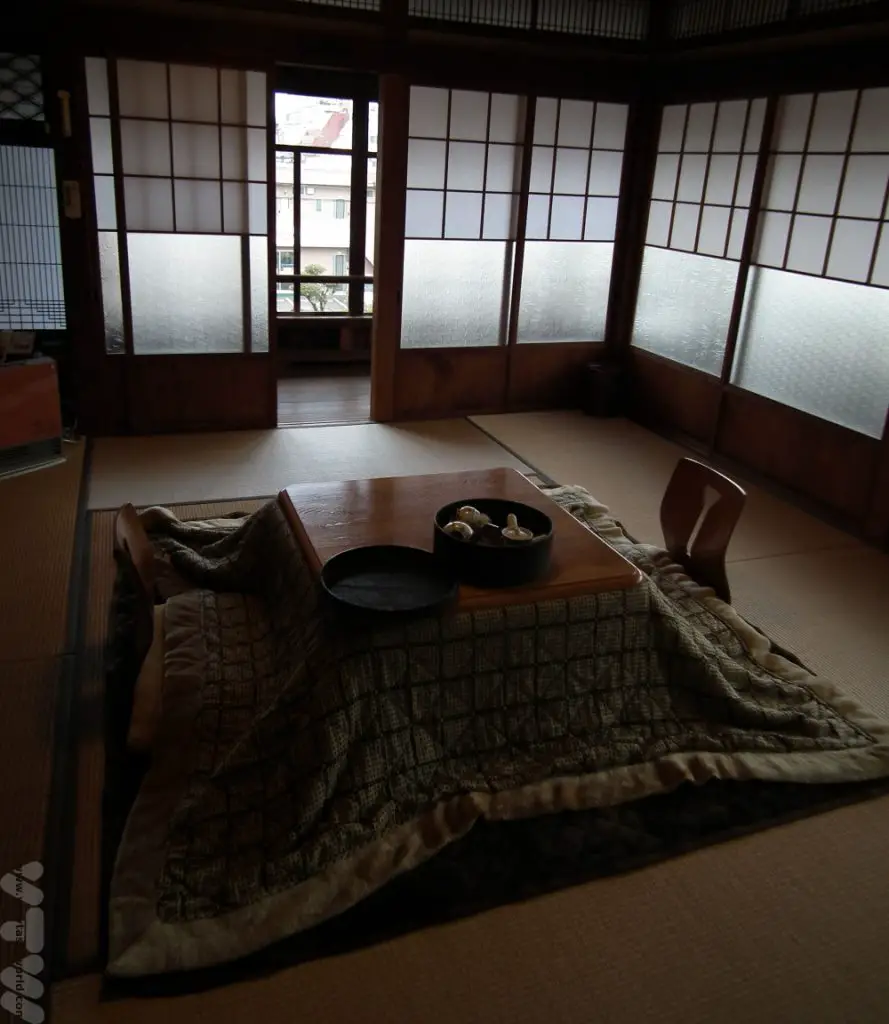
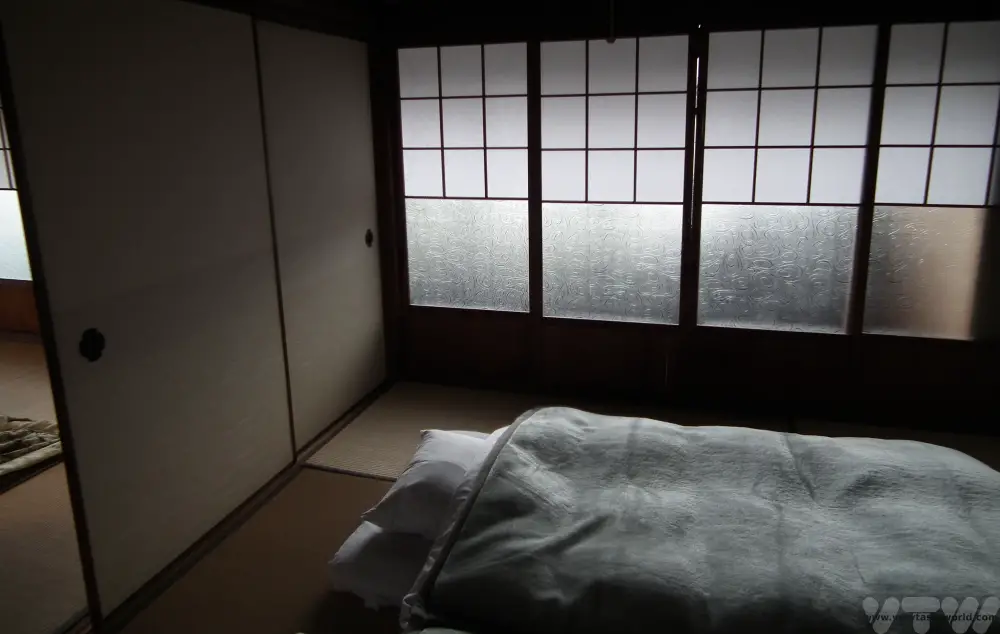
Minshuku are Japanese B&Bs – usually family run, they also offer Japanese style accommodation. They are fun, friendly and often cheaper than ryokan. It is also possible to visit family homes in some areas. AirBnB has been increasingly popular as a choice of accommodation in Japan too. There are also cheap dorm rooms for backpackers and the famous capsule hotels, whereby you can sleep inside a tube for the night, all mod-cons provided, albeit within an incredibly compact space. It’s worth noting that the budget accommodation options are often sex-segregated. When we travel around Japan we tend to choose business hotels for the majority of our stays, in order to keep the budget low, and then treat ourselves to a few nights’ splurge at a ryokan.
Related Posts You May Enjoy

- Recipe: Simmered Shiitake Mushrooms

- How to Use Public Transport in Japan

- RECIPE Oyakodon Donburi

- Planning a Trip to Japan
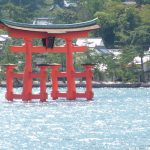
- The Makanai: Cooking for the Maiko House

- Setsubun Food – Bean Throwing Day

- The Gassho Farmhouses of Rural Japan

- Recipe: Japanese Simmered Pork Belly – Buta no Kakuni

- RECIPE: How to Make Umeboshi

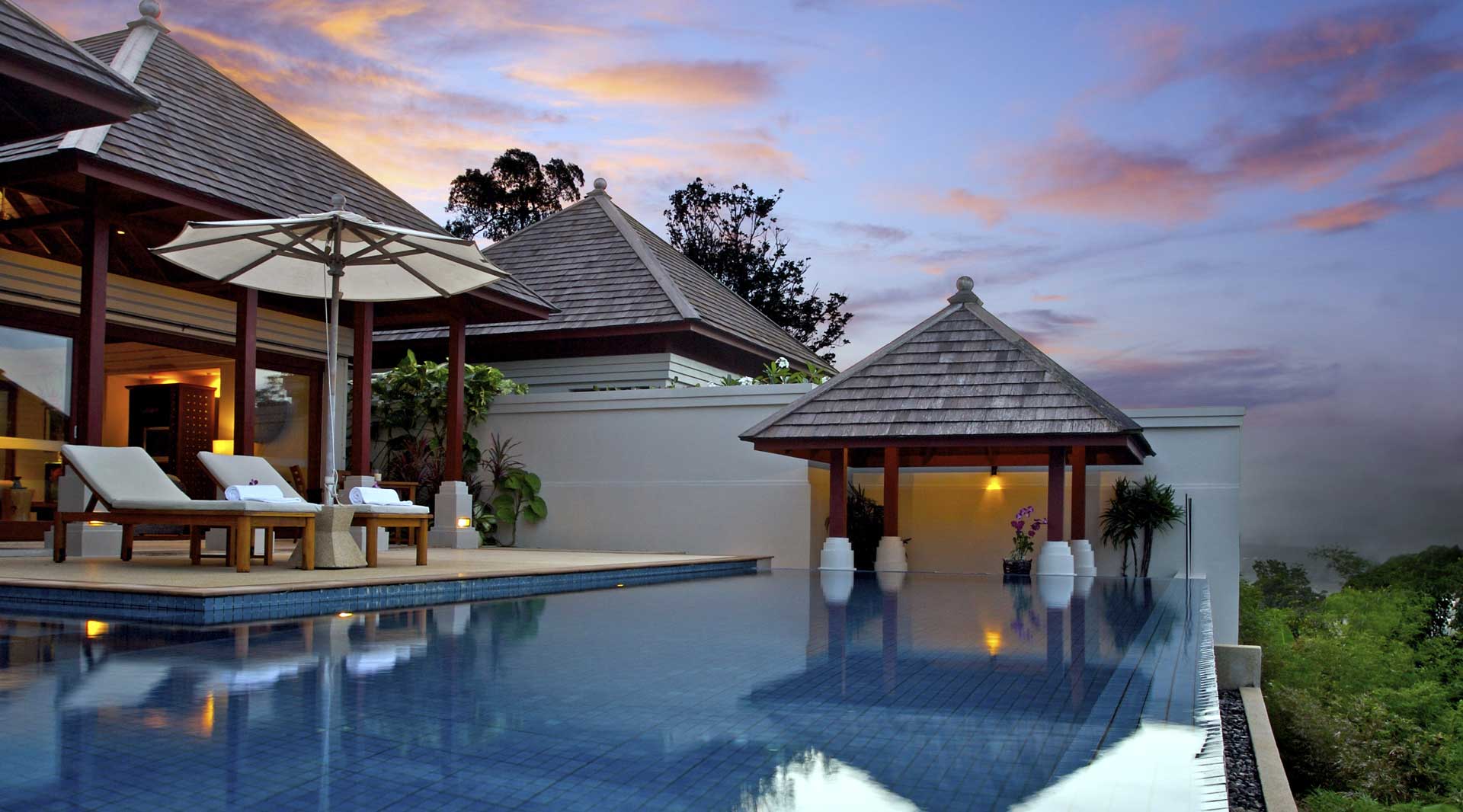

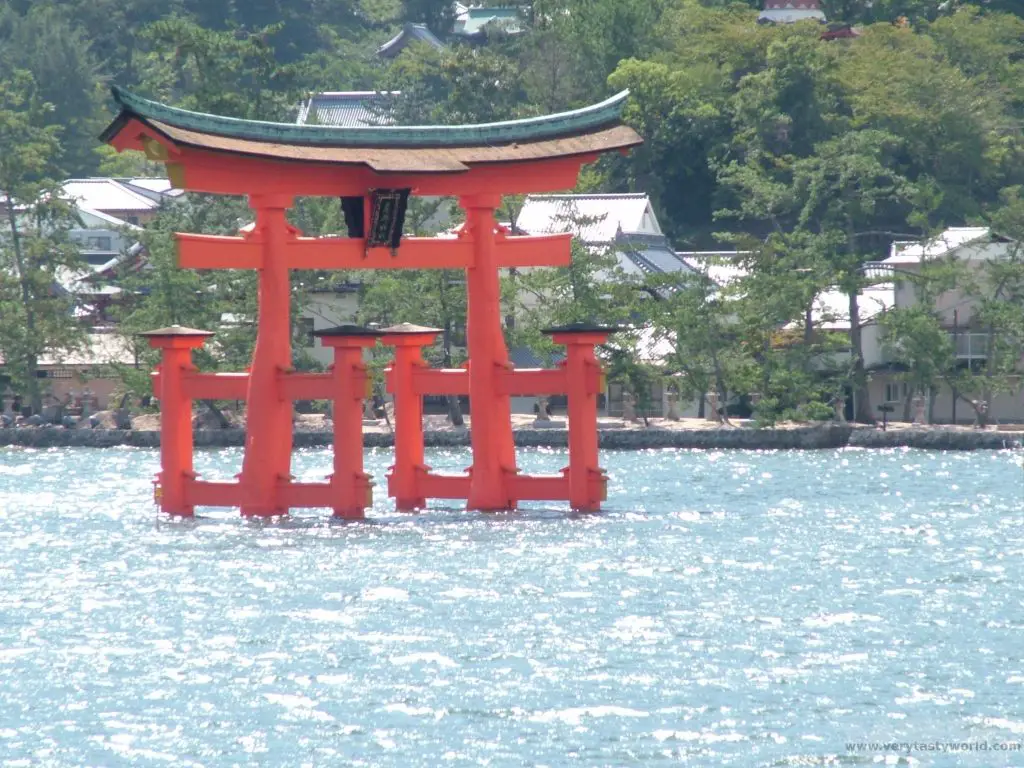
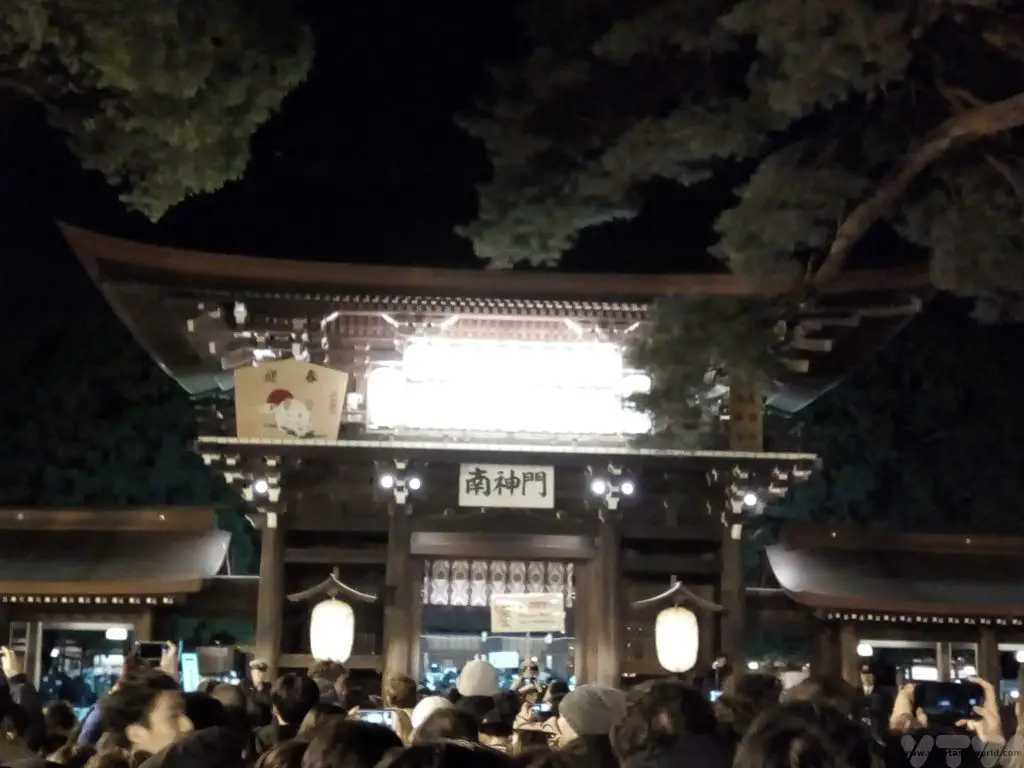

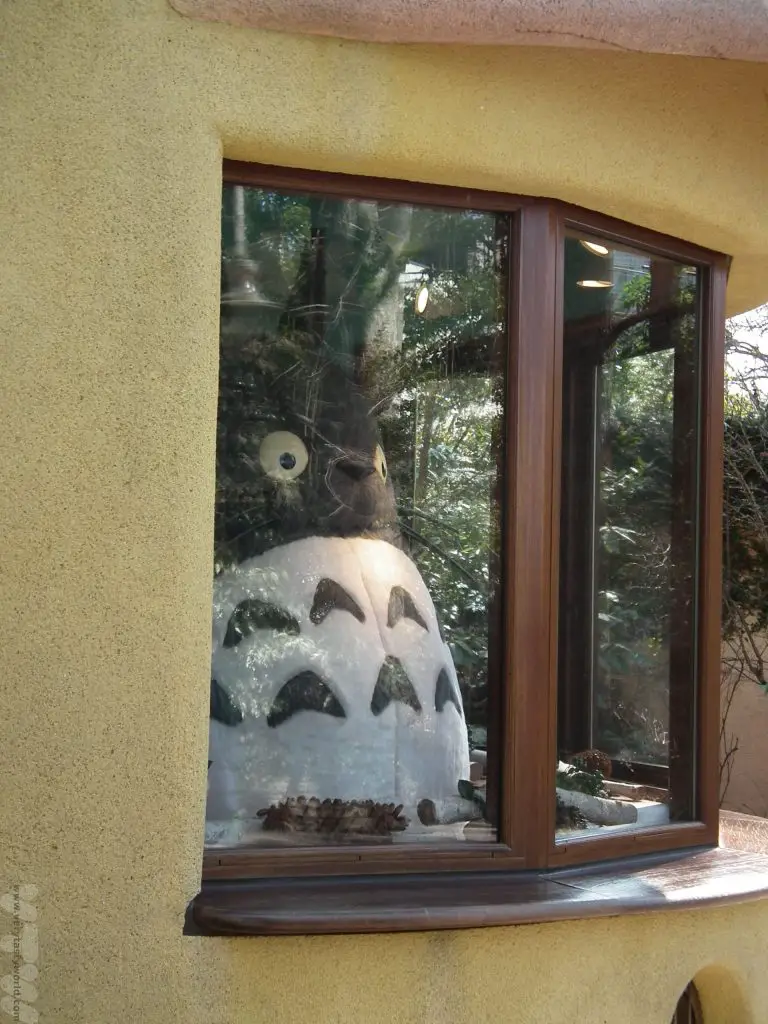


Great tips! I love a budget-friendly post about traditionally expensive places. Also…I remember being rather impressed with the toilets in Japan (after I figured out all the buttons!)
Thank you! Yes, the toilets were a bit of a challenge when we first visited Japan but didn’t take long to get used to.
Was that a rice cooker in your room??? I mean, they really do think of everything!! 🙂
It was the kettle – and that particular one was a real challenge in terms of getting it to heat water! Thinking about it, the element wasn’t inside the vessel so I guess you probably could cook rice in it, although I’m not sure the hotel would be very happy about it. 😉 Thanks for reading!
That’s a great tip for saving money. Perfect for a few nights if you are moving around a lot. I’ll bet there was a few surprised looks when using the toilet for the first time.
Thank you. Yes, business hotels are perfect if you are moving around. The toilets were most definitely a challenge first time! We even saw one with a massage button!
Super useful read! Thanks so much for sharing the business hotel tips and the idea of forwarding the luggage via Takkyubin is so cool!
Thank you. So glad you found it helpful. The Takkyubin is great – cheap, convenient and so efficient. We’ve often forwarded luggage to our hotel a few days in advance, arrived at reception and discovered that our bags were already in the room!
[…] Japanese inn, just for a couple of nights. Usually our budget limitations mean that we stay in cheap business hotels, but we always try for a couple of nights in traditional Japanese style accommodation. Our […]
[…] cheaply elsewhere. For example, we always search for the best deal for our JR Passes and usually stay in Japanese Business Hotels which are cheap and comfortable (if small), especially in Tokyo because, frankly, when you’re in […]
[…] Hotaru no Hikari, a song similar to Auld Lang Syne. We spent some time in the early evening at our business hotel to catch some of the songs before heading out to see in the new […]
[…] have used this service many times and it has always been exceptionally good. Every business hotel or ryokan we have stayed at has been entirely helpful in arranging the transportation (Say, […]
[…] ryokan, a traditional Japanese inn. Usually when we plan our trips to Japan we use a combination of cheap business hotels and then splash out on a few nights at a ryokan or two, which is more expensive but definitely worth […]
[…] Osaka many times over the years and we always make a beeline for Dotonbori. We’ve often stayed in business hotels close by. It’s a short walk away from the JR Namba Station Exit 14 (Yamatoji line), which is […]